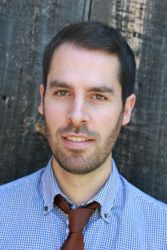From: Maxwell J. Smith, PhD candidate, Dalla Lana School of Public Health & Collaborative Program in Bioethics, Joint Centre for Bioethics, University of Toronto
 Public health ethics has emerged as a distinct area of scholarship and practice since the Joint Centre for Bioethics first opened its doors twenty years ago. In fact, the JCB has been instrumental in shaping and contributing to this important area.1 In this short column I’d like to provide the briefest of introductions to this exciting field in anticipation of an upcoming JCB Bioethics Seminar on this topic.
Public health ethics has emerged as a distinct area of scholarship and practice since the Joint Centre for Bioethics first opened its doors twenty years ago. In fact, the JCB has been instrumental in shaping and contributing to this important area.1 In this short column I’d like to provide the briefest of introductions to this exciting field in anticipation of an upcoming JCB Bioethics Seminar on this topic.
What is public health?
This is contested. What a surprise! Public health has long struggled to demarcate its boundaries, and one of the central lines of inquiry in public health ethics seeks to address complex questions of authority, legitimacy, and justification for diverse public health activities. Issues that perhaps fit neatly within the purview of public health include infectious disease surveillance and tobacco control, while issues like food and housing insecurity and guaranteed annual incomes point to the important, yet contested, areas where public health interventions seek to impact the social factors that determine our health. In the broadest sense, though, public health has been defined as collective activities that aim to protect and promote the health of populations.2
What is public health ethics?
Public health ethics, then, should perhaps be interpreted as a reorientation of traditional bioethics scholarship and practice that aims to address distinctive moral questions that arise from public health’s focus on populations instead of individuals, prevention rather than treatment, and collective action instead of individual intervention to protect and promote the public’s health.3
A focus on the health of populations raises complex moral questions about who ought to benefit from public health activities and the types of sacrifices that can justifiably be made in order to protect and promote population health. Common to debates around mandatory vaccination and quarantine, but also to limiting soft drink sizes and laws mandating bicycle helmets, this population-level focus typically evokes political questions regarding trade-offs between individual liberties and the common good, the role of solidarity in addressing common threats to our health,4 and reciprocal obligations that exist to those who are asked to act in the interest of the common good.5 Furthermore, because benefits and burdens generated from public health activities are often unevenly distributed within and between populations, considerations of disadvantage,6 health equity, and social justice7 are central to public health ethics.
Unlike the individual actions of health care professionals taken to promote their patients’ health, collective action usually (but not always) requires government intervention, and may involve coercive tools that carry legal force. As Faden and Shebaya eloquently put it, “the exercise of public authority and the imposition of public sanctions and penalties in an area as deeply personal as an individual’s health choices require strong justification.”8 Public health ethics seeks to provide input on questions surrounding the justification for collective, sometimes paternalistic, action on issues that impact the public’s health.
Aiming to prevent illness, disease, injury, and death also comes with its particular moral challenges. At a time when issues that persistently make the front page of newspapers include precision medicine and wait-times in hospitals (where outcomes can be individuated, quantified, and are often short-term), demonstrating the positive effects of prevention can be formidable, as positive outcomes of preventative action can often be difficult to measure (i.e., in the absence of counterfactuals), often cannot be individuated, and are long-term, perhaps only manifesting for future populations. What kinds of ethical arguments could be used to persuade decision-makers to take preventative action on issues that produce significant morbidity and mortality in our society?
Quintessential public health challenges, like the spread of infectious diseases and the fluoridation of public drinking water, may seem like the challenges of 100 years ago. Yet, current outbreaks of measles and Ebola viruses, debates about fluoridation and mandatory vaccination, the effects of climate change and other environmental factors on our health, and dramatic inequalities in health clearly illustrate that public health issues are central to our daily lives and are in dire need of continued critical reflection and discussion from an ethics perspective.
So what’s next for public health ethics? To find out check out the JCB Bioethics Seminar Series on Wednesday, March 4th (4:10-5:30pm) to hear thoughts on the matter from Angus Dawson, Ross Upshur, Alison Thompson, Cécile Bensimon, Diego Silva, and myself.
- See ‘Public Health Ethics’ (link no longer valid)
- Verweij M, Dawson A. The Meaning of ‘Public’ in ‘Public Health. In Dawson A, Verweij M (eds.), Ethics, Prevention and Public Health. 2007;Oxford:Oxford University Press.
- Dawson A, Verweij M. Public Health Ethics: A Manifesto. Public Health Ethics. 2008;1(1):1-2.
- Dawson A, Jennings B. The Place of Solidarity in Public Health Ethics. Public Health Reviews. 2012;34:65-79.
- Viens AM, Bensimon CM, Upshur REG. Your Liberty or Your Life: Reciprocity in the Use of Restrictive Measures in Contexts of Contagion. Journal of Bioethical Inquiry. 2009;6(2):207-17.; Silva DS. Smoking Bans and Persons with Schizophrenia: A Straightforward Use of the Harm Principle? Public Health Ethics. 2011;4(2):143-8.
- Silva DS, Smith MJ, Upshur REG. Disadvantaging the Disadvantaged: When Public Health Policies and Practices Negatively Affect Marginalized Populations. Canadian Journal of Public Health. 2013;104(5):e410-2.
- Smith MJ. Health Equity in Public Health: Clarifying our Commitment. Public Health Ethics. 2014. [e-pub ahead of print] doi: 10.1093/phe/phu042.
- Faden R, Shebaya S. Public Health Ethics. In Zalta EN (ed.), The Stanford Encyclopedia of Philosophy. Spring 2015 Edition.


